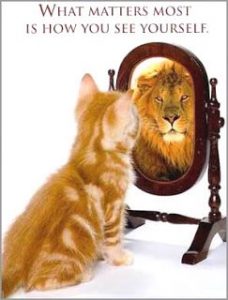The Past Can Prepare Us for the Future
I think about last year’s Mankato Marathon daily. It doesn’t matter that it was almost a year ago or that I have run another marathon since then. It is my best marathon experience to date, and so I make a point of thinking about it as often as I can.
There’s a reason that I’m so intentional about focusing on that race. It’s called self-efficacy.
Self-efficacy is our belief in our ability to be successful in specific situations. Albert Bandura, a professor emeritus at Stanford University, originated the theory of self-efficacy. He says that the strongest way to impact your own self-efficacy is through mastery experiences: If you’ve been successful at something before, you will likely feel that you can do it again.
By remembering the success of last year’s Mankato Marathon, I focus on positive emotions and a positive experience. That allows me to concentrate on purposeful, productive thoughts that will help me perform up to my potential in future races. It builds my self-efficacy and my belief that I am a strong runner.
I use mastery experiences almost daily in all areas in my life. I think about my best experiences as a teacher, doing research, even being a mother. The images that run through my head help me to be my best self. I rarely think about times that I haven’t performed up to my potential, because that doesn’t help me be my best self. That kind of negative thinking restricts my potential.
I use this technique with others as well. I ask my clients to think about their best experiences engaging in their sport, exercise, or other type of performance. As they describe those experiences, their faces light up. They feel empowered just talking about it. Focusing on success builds their self-efficacy.
Ask two people to describe their best experience doing an activity that you know they love. Then, give them your undivided attention, because what they’re describing is meaningful to them. Just by listening, you are building their belief in their ability. Something so small can have a lasting impact and could help propel them forward.
You can also help people around you build self-efficacy through verbal persuasion — convincing them that you believe they can be successful. Last year I was talking with my friend Becky about her goals for an upcoming marathon. I told her I thought she could run it in 3 hours and 30 minutes and offered evidence as to why that was possible. She recently told me that was one of the defining moments that helped her believe she could do it. I hope you will give two people evidence that they can be successful this week. I suspect your support could change their lives, their performance and their self-efficacy, too.
You can help yourself as well, just by focusing on your own best experiences and providing evidence that you can do it again. Focusing on times that you have been successful will allow you to perform up to your potential, reach your goals and lead a happier life. Most importantly, it will allow you to be your best self in everything that you do.

